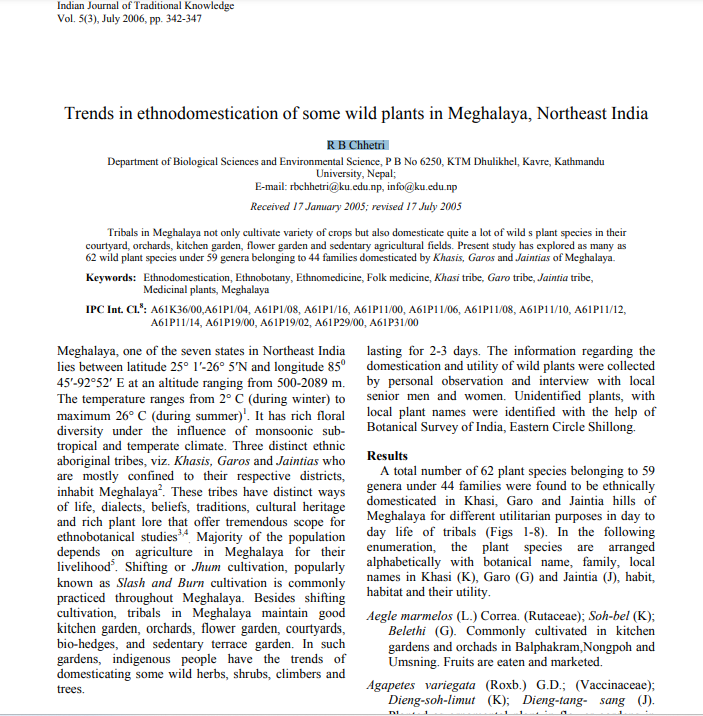
Wild Edible Fungal Resources Used by Ethnic Tribes of Nagaland, India
Publication Year: 2011
Author(s): Bhaben T,Gurung L,Chandra SG
Abstract:
The paper documents the knowledge about the wild edible fungal flora of Kohima district of Nagaland, India used by the indigenous tribes through structured questionnaires in consultations. The study revealed that more than 12 ethnic groups of Nagaland were found to be mycophilic and to have extensive traditional mycological knowledge. A total of 13 species of fleshy fungi under 9 genera and 6 families were identified. Further, mushroom selling was observed in Kohima town of Nagaland where women represented 83% of sellers, while indigenous people comprised 67.28%. The sale of some wild edible mushrooms, the large amounts of commercialization, the complicated intermediary process, as well as the insertion of mushrooms into different informal economic practices were all evidence of an existent mycophily in a sector of the population of this region.
Source of Publication: Indian Journal of Traditional Knowledge
Vol/Issue: 10(3),512-515pp.
Country: India
Publisher/Organisation: NISCAIR-CSIR
URL:
https://nopr.niscpr.res.in/bitstream/123456789/12031/1/IJTK%2010%283%29%20512-515.pdf
Theme: Traditional Agriculture | Subtheme: Wild Food
Related Documents
Research Papers/Articles
Survey of Wild Food Plants for Human Consumption in Elazığ (Turkey)
Published Year: 2015
Abstract:
This study aims to record accumulation of knowledge on plants which are used as food by local... Read More
Research Papers/Articles

Trends in Ethnodomestication of Some Wild Plants in Meghalaya, Northeast India
Published Year: 2006
Abstract:
Tribals in Meghalaya not only cultivate variety of crops but also domesticate quite a lot of w... Read More
Research Papers/Articles

Importance of Certain Tribal Edible Plants of Tripura
Published Year: 2010
Abstract:
Tribal people of Tripura are used to eat few parts of certain plants. The form of eating and t... Read More



